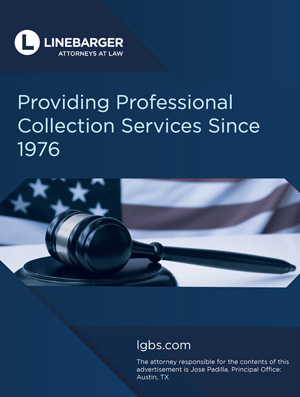Editor’s Note: The original version of this article was published in the fall 2018 issue of Virginia Family Law Quarterly, a publication of the Family Law Section of the Virginia State Bar.
In 2018 the Supreme Court of Virginia (SCV) and the Court of Appeals of Virginia (CAV) announced appellate mediation pilot projects that began January 1, 2019 and run for 2 years. These mediation pilot projects offer significant new opportunities for lawyers and litigants alike.
For decades now mediation has been available to help resolve legal disputes. The Virginia Code’s “Court-Referred Dispute Resolution Proceedings” chapter, enacted in 1993, defines mediation (§ 8.01-576.4) and authorizes courts to refer any contested civil matter to a dispute resolution orientation session. The referral is intended to “encourage the early resolution of disputes through the use of procedures that facilitate:
- Open communication between the parties about the issues in the dispute;
- Full exploration of the range of options to resolve the dispute;
- Improvement in the relationship between the parties; and
- Control by the parties over the outcome of the dispute.”
Even in court-referred cases where the orientation is mandatory, mediation is voluntary. After the orientation session, any further participation in mediation or other form of dispute resolution “shall be by consent of all parties.” A mediator who receives court referrals must be “certified pursuant to guidelines promulgated by the Judicial Council of Virginia.”
The Code also has a mediation chapter that was enacted in 1988, which contains provisions regarding confidentiality of mediation (and exceptions thereto), standards and duties of mediators, and the effect of written settlement agreements, among others. Its mediation definition (§ 8.01-581.21) and the court-referred definition are virtually the same: “a process in which a [mediator] facilitates communication between the parties and, without deciding the issues or imposing a solution on the parties, enables them to understand and to reach a mutually agreeable resolution to their dispute.”
We’ve always been able to send clients to private mediation, if not court-referred. So what’s new? Are the appellate courts referring cases to mediation? No. The SCV and the CAV initiated pilot mediation projects, but mediation is not mandatory. Cases will not be referred to orientation sessions and will not be court-referred at all. Instead, in certain categories of cases, the courts are offering a 30-day automatic stay opportunity, so parties choosing to mediate can do so before incurring the costs of preparing the appellate record and filing briefs.
In the CAV, the project is limited to equitable distribution cases and/or related attorneys’ fees in which both sides are represented. In the SCV, cases within its original jurisdiction and appeals/petitions arising from criminal convictions will not be eligible. In most other cases, however, where both sides are represented and a petition for cert has been granted, the cases are eligible for the pilot projects.
A 2018 press release announcing the pilot projects offered some court perspective. SCV Chief Justice Donald W. Lemons observed that “Mediation … gives citizens an alternative to traditional litigation with its attendant expenses and stress.” CAV Chief Judge Glen A. Huff stated, “Satisfaction of the parties is best accomplished through voluntary settlements rather than decisions imposed by the Court.” Chief Justice Lemons further noted, “A successful mediation allows the parties to own the outcome. No case will be required to be mediated; rather, we are simply offering a creative alternative to those who want it.”
For appellate litigation attorneys as well as trial attorneys who appeal the occasional case, the pilot projects’ 30-day stay opportunity offers clients a fresh, well-timed option for settlement. Guided by their attorneys during mediation preparation, then with the assistance of the mediator, litigants can ask and answer:
- How is this appeal process different from the trial we just had?
- What are my odds of prevailing?
- What do I need?
- If I prevail, do I get what I need?
- Are there options to appellate litigation that might better serve my needs?
Appellate Mediation: A Guidebook for Attorneys and Mediators1 describes a client-centered appellate mediation process focused on a sound understanding of the dispute by the parties. The book, published by the ABA and authored by experienced appellate mediators Brendon Ishikawa and Dana Curtis, deserves praise for its emphasis on the needs and interests of the parties. The authors draw on extensive experience to promote a problem-solving and primarily facilitative approach to appellate mediation. “The art of appellate mediation is in helping parties successfully explore solutions that have previously eluded them because they have not been able to open channels of candid communication, uncover hidden or erroneous assumptions, or engage in constructive negotiations.”2 The book’s second chapter delivers a detailed, step-by-step case evaluation process, “the purpose of which is to determine the odds and potential outcomes of pursuing an appeal, to examine alternatives to litigation, and to compare the presently available options to the option of pursuing the appeal.”3 The chapter also “explore[s] the implications of appellate rules and procedures on case evaluation for both appellants and respondents.”4 In total, Ishikawa and Curtis’s mediation process:
- Is carefully structured as understanding-based, client-involved, problem-solving, collaborative, and primarily facilitative;
- Includes all necessary activities for achieving a successful outcome;
- Organizes the process into phases that build on one another and allow participants to anticipate the process and to focus their discussions on the topics at hand; and
- Discourages premature bargaining over money to the exclusion of more creative, interest-based discussions.5
So, why would litigants, so hardened in their positions by the time of an appeal, ever be convinced to mediate? Appellate Mediation lists the following incentives as some of the reasons for parties to seek settlement:
- Poor odds of prevailing on appeal;
- The appellant’s need to avoid further loss or the respondent’s need to preserve a favorable judgment;
- The goal to avoid additional legal fees;
- The disruptive effect of litigation on personal and business relationships;
- The potential to structure installment payments on the judgment;
- Avoidance of additional time delays due to further litigation in the appellate courts;
- Litigation fatigue;
- The opportunity for parties to solve their own problems rather than having a result imposed by a court;
- Possible tax advantages;
- A party’s immediate financial need for money awarded in the judgment;
- Privacy that can be achieved with a confidential settlement agreement;
- The potential for global settlement that resolves the controversy entirely, including issues that are not part of the single case being appealed or parties that are not involved in the appeal; and
- Peace of mind.6
For attorneys, the pilots offer an opportunity to develop or enhance appellate mediation advocacy skills and an opportunity to guide clients through a timely settlement, under the automatic-stay endorsement of the courts. For attorneys who qualify, the pilot projects also provide a novel opportunity to certify as a Virginia appellate mediator for the two-year period.
Virginia mediator certification centers on facilitative mediation training, the model of mediation endorsed by the Appellate Mediation authors. Facilitative mediation focuses on the parties’ interests and needs as opposed to the parties’ legal positions and arguments (the focus of the evaluative mediation model). It is especially helpful in disputes where personal or business relationships exist. Facilitative mediation encourages recognition and understanding of all problems the parties need resolved, not just their legal issues. Facilitative mediation sessions usually involve more face-to-face time than evaluative mediation, which often offers little to no interaction between the parties.
Because the appellate cases that mediate are not court-referred, litigants need not choose a Virginia certified mediator. By the start of the pilot projects, however, appellate-trained mediators (attorneys and retired judges trained in the facilitative process advocated in Appellate Mediation) were certified and available.
Trainings were held in November 2018 to facilitate timely appellate mediator certification. The Joint Alternative Dispute Resolution Committee of the Virginia State Bar and the Virginia Bar Association (JADRC), whose Special Committee to Study Appellate Mediation in Virginia recommended the pilot projects to the SCV, sponsored a 20-hour Basic Mediation Course for Appellate Mediators and a 2-hour Mediation Training Course for Appellate Mediators. For appellate mediator qualification details, see the Report of the Special Committee.
ABOUT THE AUTHOR
Sarah P. “Sally” Campbell, Esq., is the manager of the Division of Dispute Resolution Services at the Department of Judicial Services, Office of the Executive Secretary, Supreme Court of Virginia. She can be contacted at spcampbell@vacourts.gov
- Brendon Ishikawa and Dana Curtis, Appellate Mediation: A Guidebook for Attorneys and Mediators (Chicago: American Bar Association, 2016).
- Id., p. xxiv.
- Id., p. 23.
- Id.
- Id., pp. xxvi–xxvii.
- Id., p. xxviii.



